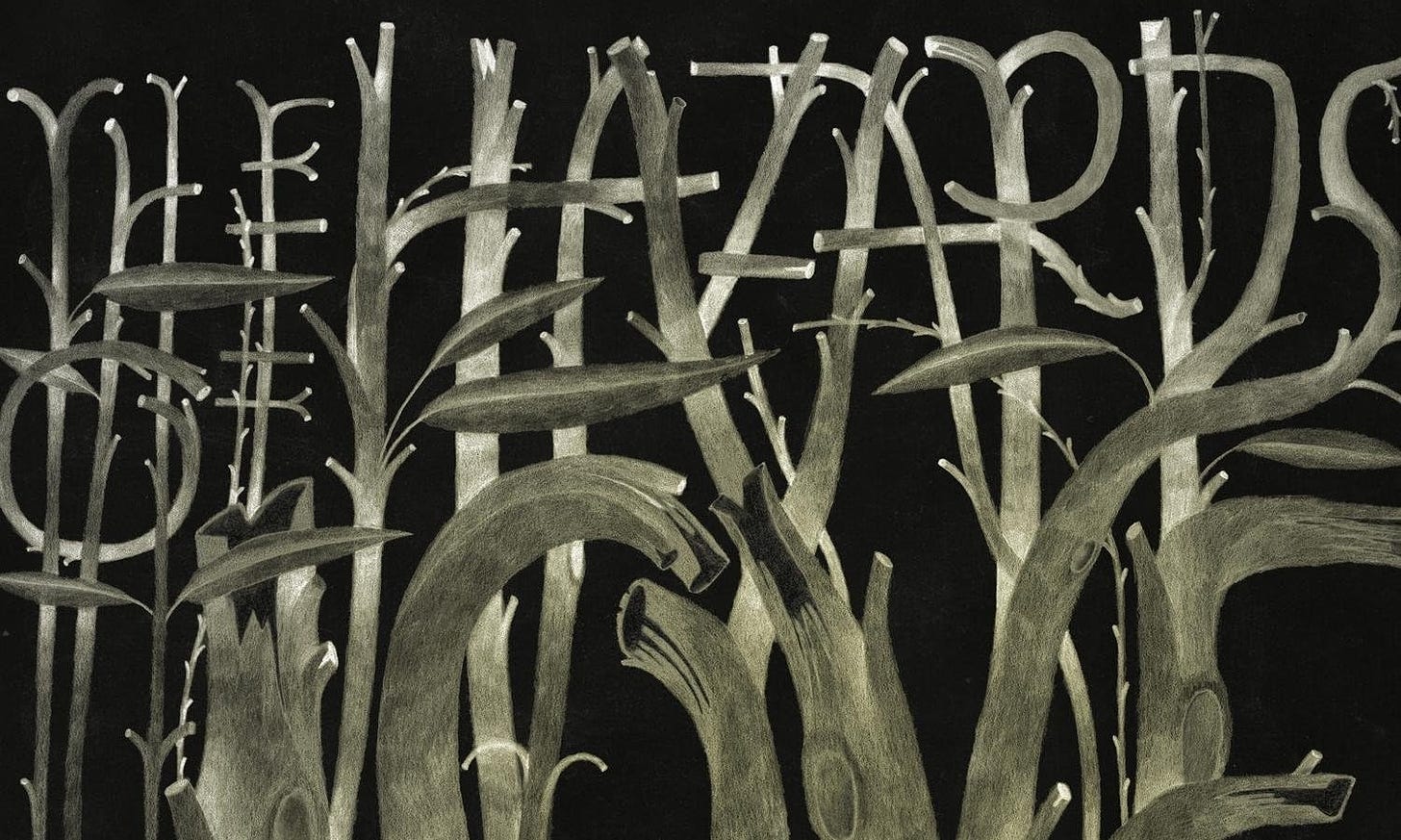In May, I wrote a fairly personal piece for Defector about my experience finally seeing one of my favourite bands, The Decemberists, in concert for the first time after about 20 years of fandom. While the band has always been in my regular rotation, the concert and the article and the fact that they’ve got a new album out has brought them back to the fore for me in a big way. I’ve been going back, listening to older albums, and I’ve kept coming back to what was certainly their most ambitious creation: the prog-inspired rock opera The Hazards of Love, a 17-track masterpiece of modern folk music storytelling.
The Hazards of Love tells the tale of a woman, Margaret, who falls in love with a forest-dwelling shapeshifter named William. Unfortunately, their blossoming love catches the ire of William’s mother, the Forest Queen. The jealous Queen, angered at the betrayal of her human son, who she had rescued and gifted immortality, but allows him one night as a mortal once more to spend with his love before taking him away for all eternity. She then aids a ghoulish, murderous rake in kidnapping Margaret, and William sets out to save her from their evil clutches.
After the daring rescue, set to an exuberant reprise of the album’s great “The Wanting Comes In Waves”, we get to the stories final act. Its final song, “The Hazards of Love 4 (The Drowned)”. It is, to put it simply, one of the most beautiful songs I’ve ever heard.
Building on motifs developed over the course of the album in previous songs bearing the same title, “The Drowned” sees William, still mortal, and Margaret marry each other by drowning themselves in the river, their love forever secured, out of the reaches of life’s treacheries.
Lead singer Colin Meloy, in his loud yet lilting voice belts the opening line to the sound of an acoustic guitar. “Margaret, array the rocks/Around the hull before we’re sinking,” he sings, in a feat of lyrical alliteration that sounds even more impressive given voice then merely read on the page. Its smooth, up-and-down effect draws the listener into what is the album’s culmination of feeling, that of a love so great that to drown is its greatest expression. And rather than the narcissistic impulses of a Morrissey, “The Drowned” imagines such a suicide as mutual expression, the commitment to an eternal bond untouchable by the travails of the world. It is a fairy tale, a metaphorical leap into an unknown in which fear no longer exists because two human beings in all their mortality are together.
"So let's be married here today These rushing waves to bear our witness And we will lie like river stones Rolling only where it takes us"
It’s the blend of tragedy and undying hope that fills my heart whenever I reach this last song on the album. Its country music air bringing the operatic opus down to a space of simple humanity. Adding more instruments and backing vocals as it goes, at some points sounding a little like something Conor Oberst might have produced, Meloy lifts the core melody to a place of transcendence through its last verse and into its final chorus.
"With this long last rush of air We speak our vows and starry whispers When the waves came crashing down He closed his eyes and softly kissed her" "But I pulled you and I called you here (Didn't I, didn't I, didn't I?) And I caught you and I brought you here (Didn't I, didn't I, didn't I?) These hazards of love Never more will trouble us"
That chorus is itself a majestic, complex bit of songwriting, in which William as narrator, in the climax of it all, asks himself whether their love was ever so mutual to begin with. “But I caught you and I brought you here,” he reflects, the daring rescue reframed perhaps as yet another kidnapping. The love itself perhaps a fantasy.
The Hazards of Love takes inspiration from many sources, but the biggest is the old Scottish Child ballad “The Mother's Malison”, also known as “Clyde’s Water” (No. 91 in the Roud Folk Song Index, if you care to look it up). That song, and its variations, similarly tells the story of Willie and Margaret, who drown themselves after their love is thwarted by meddling parents. “The Drowned” is, in effect, that same story given grander life in fantasy. Musically, The Decemberists leverage their trademark musical-theatre-maximalism to reach back through time and resuscitate the most base of human emotions and experience. The hazards of love, never more will trouble us.




